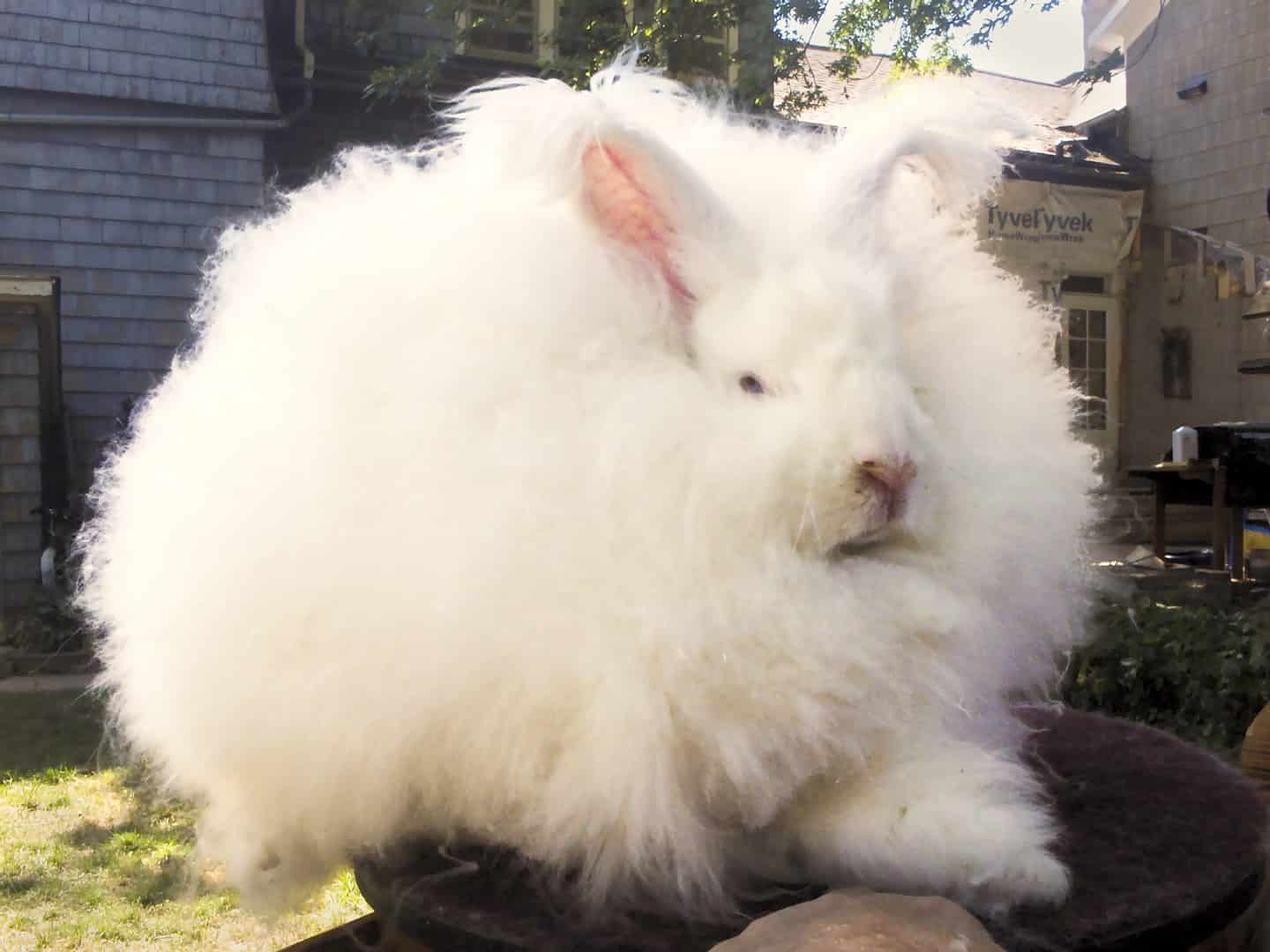About Rabbits
Humans have loved rabbits for centuries, both as companions and as sources of nourishment and clothing. Rabbits are bipedal herbivores that live in large groups. Their scientific name is Oryctolagus cuniculus. They have nearly 360-degree vision and can jump almost ten feet in the air. They are prey animals that have been around for millions of years. The animals are native to North America, southwest Europe, Sumatra, Southeast Asia, and some parts of Japan. Baby rabbits, or kits, are born in litters of six and live for about twelve years. Rabbits have many predators including coyotes, humans, and foxes. There are over 305 domesticated breeds around the world.
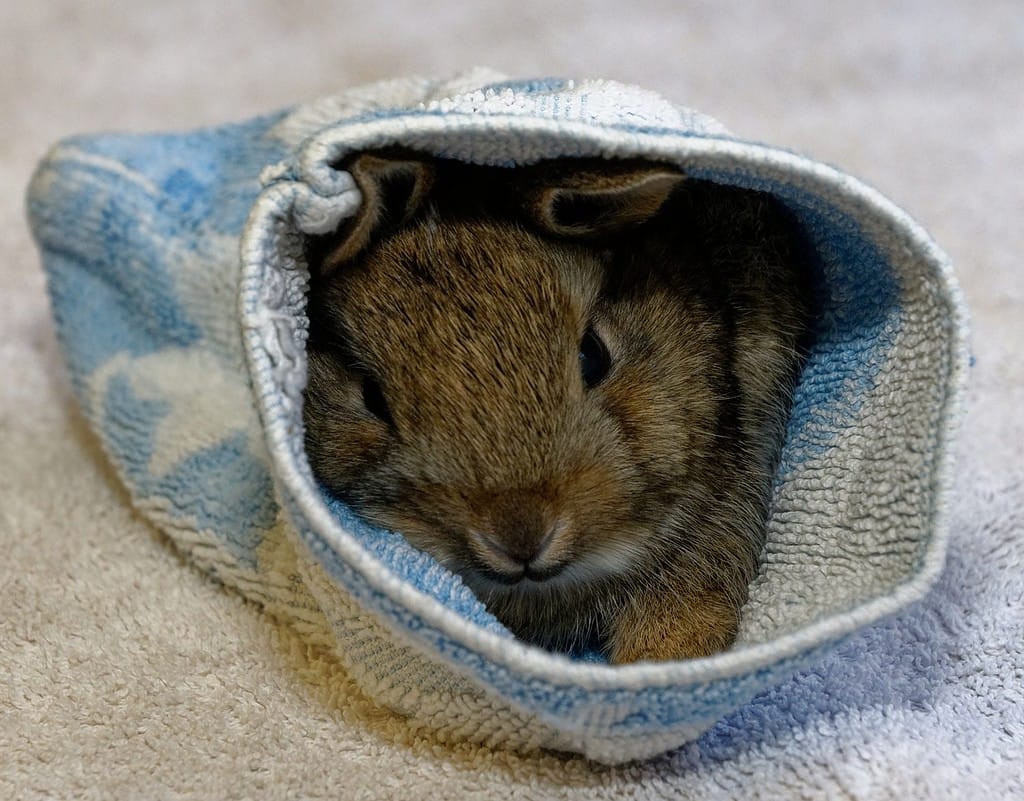
Rabbits
come in a variety of colors.
©Colin Seddon/Shutterstock.com
So, Do Rabbits Make Good Pets?
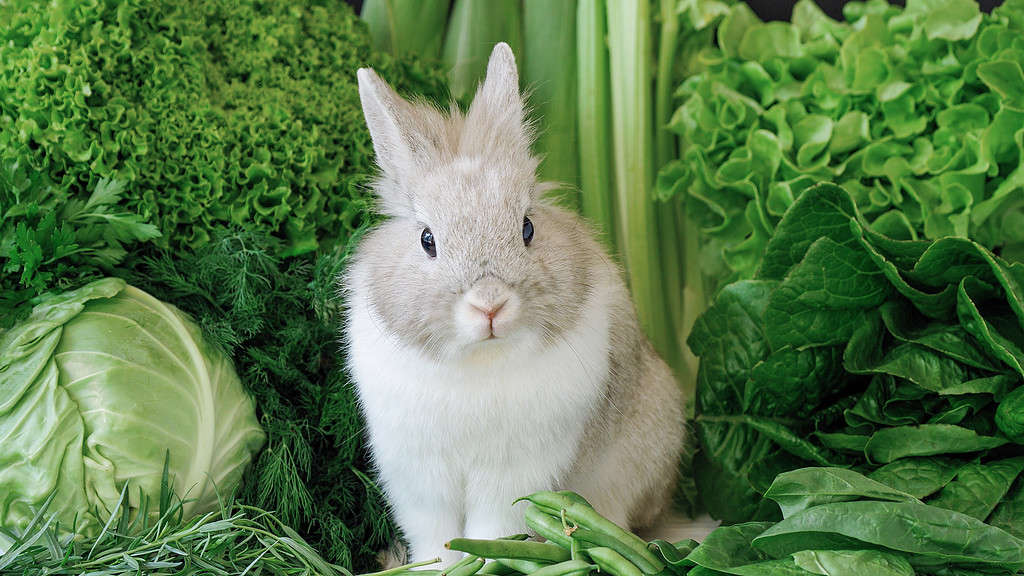
Rabbits are quite fragile and not great pets for children.
©Olha/iStock via Getty Images
If you are diligent and responsible, rabbits can make good pets. They have specific requirements that you cannot slack on if you want to be a good pet owner. Remember, these animals are fully dependent on you to survive. Do not get rabbits if you don’t have the time or capacity for multiple pets. Also, no matter how cool your kid is, they won’t make a good rabbit owner. Rabbits are fragile and require gentle handling. Most children tend to handle things roughly, which will make the animal uncomfortable. Stick with something else for your young people.
For those interested in animal husbandry, rabbits can be quite valuable. Their fur, meat, and demeanor make great additions to farms. However, humans must approach rabbits with respect as equals, rather than as property. Do not focus on productivity or output, instead focus on only taking what you need and providing the animals the best quality of life you can.
Pros
1. Rabbits are Quiet, Gentle, and Affectionate

Rabbits should live in pairs or groups.
©katunes pcnok/Shutterstock.com
Since they are prey animals, rabbits will be shy at first. Once they warm up to you, they will shower you with love and affection. They will nudge you gently for treats and love to be petted. The animal will not jump up on you or scratch you, unlike other pets. If you want a companion that loves attention, the rabbit might be the ideal choice for you. They will follow you from room to room if possible and hop around while you’re sitting. The animals will also lick you and run in circles around your feet.
2. They Can Be Trained
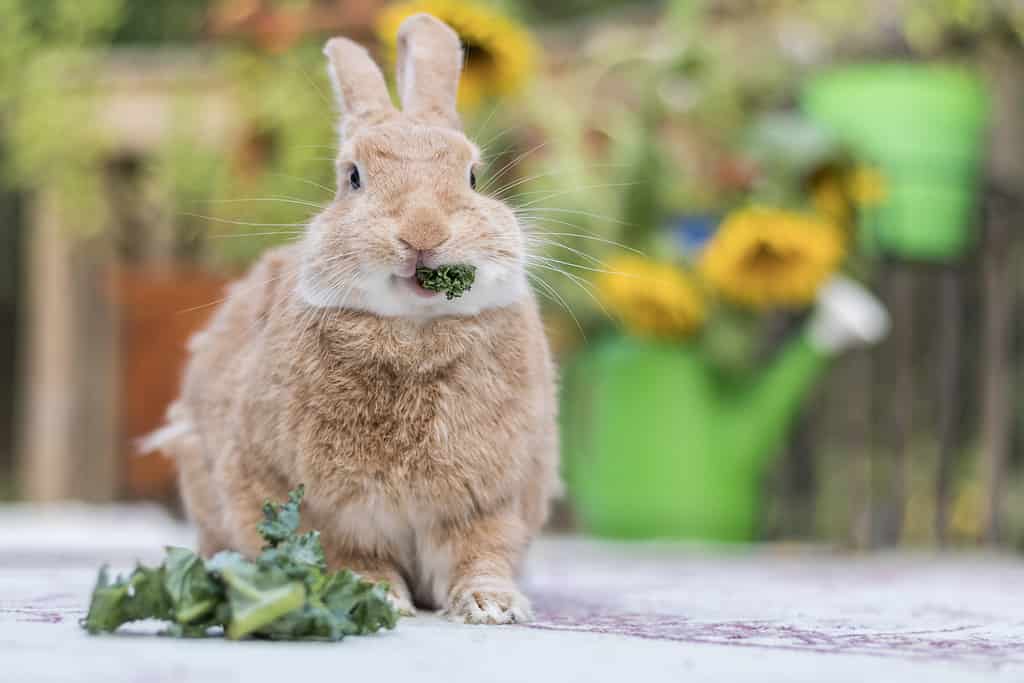
Rabbits purr to show they are content.
©Rabbitti/iStock via Getty Images
Though people might think otherwise, rabbits are quite intelligent. Humans can train them to do tricks if they are diligent and gentle. You can teach your rabbit every trick that you’d teach a dog, including agility courses. If you want to walk your animal outside, you can train them to use a harness. You can also train them to use a litter box.
3. Rabbits Are Usually Scentless
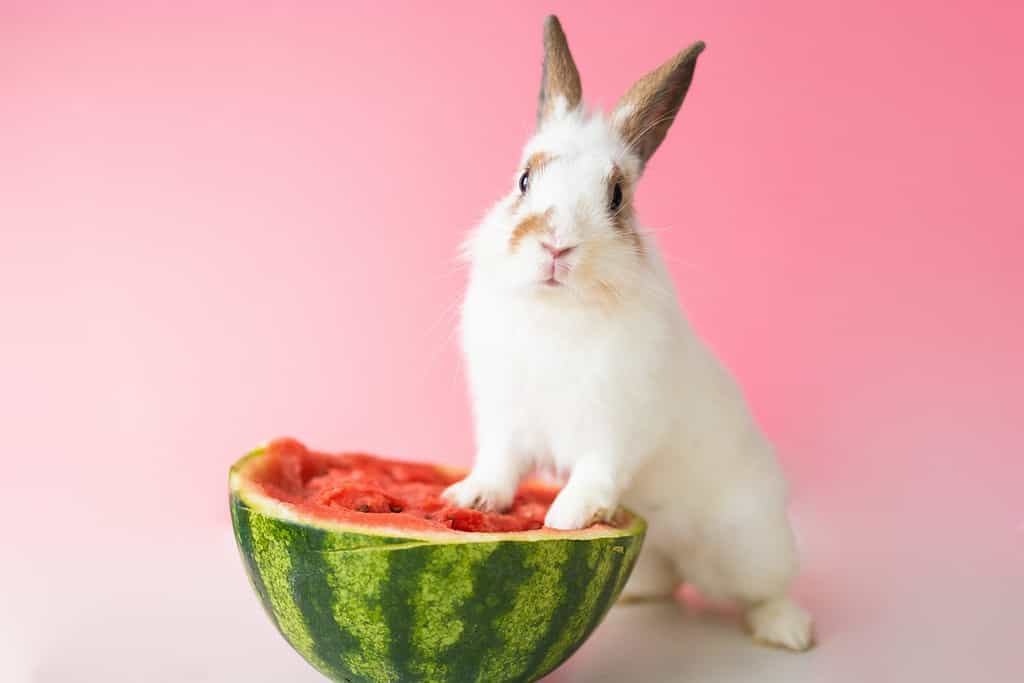
Young rabbits rarely sit still.
©Yanya/Shutterstock.com
Some people believe that rabbits are smelly and stinky animals. This couldn’t be further from the truth. Rabbits love to clean themselves and are quite meticulous about it. Their body, and even their poop, doesn’t release a strong odor. The only exception is rabbit urine, which has a high ammonia content. Keep up with daily litterbox and enclosure cleaning and you won’t notice a smell in your home.
Cons
1. They Chew on Everything

Rabbits love to chew on wood specifically.
©UNIKYLUCKK/Shutterstock.com
Before bringing a rabbit into your home, you’ll have to put some safety measures in place. Rabbits love to chew on pretty much everything since their teeth constantly grow. Cover or move any furniture you don’t want your animal to chew on. The furry creatures will also target wires and outlets, which is dangerous for them because they can get electrocuted. Use plastic split tube wires to prevent this.
2. They Hate Being Held
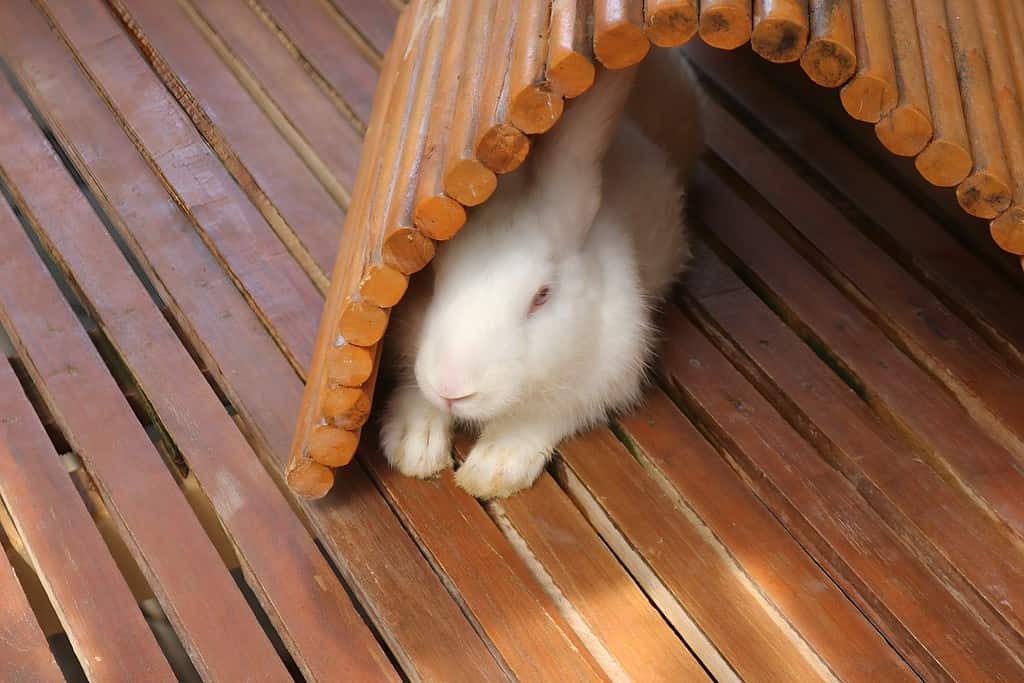
Since rabbits are prey animals, they get scared if they feel trapped.
©laneophyte/Shutterstock.com
Though they are affectionate and sometimes will sit in the laps of their loved ones, rabbits hate being held. Since rabbits are prey for many species, including humans, they will most likely kick and scramble if they are picked up. You’ll want to interact with the rabbit on their level by providing pets and potentially a warm lap to sit on.
3. They Need a Lot of Space, Attention, and Time
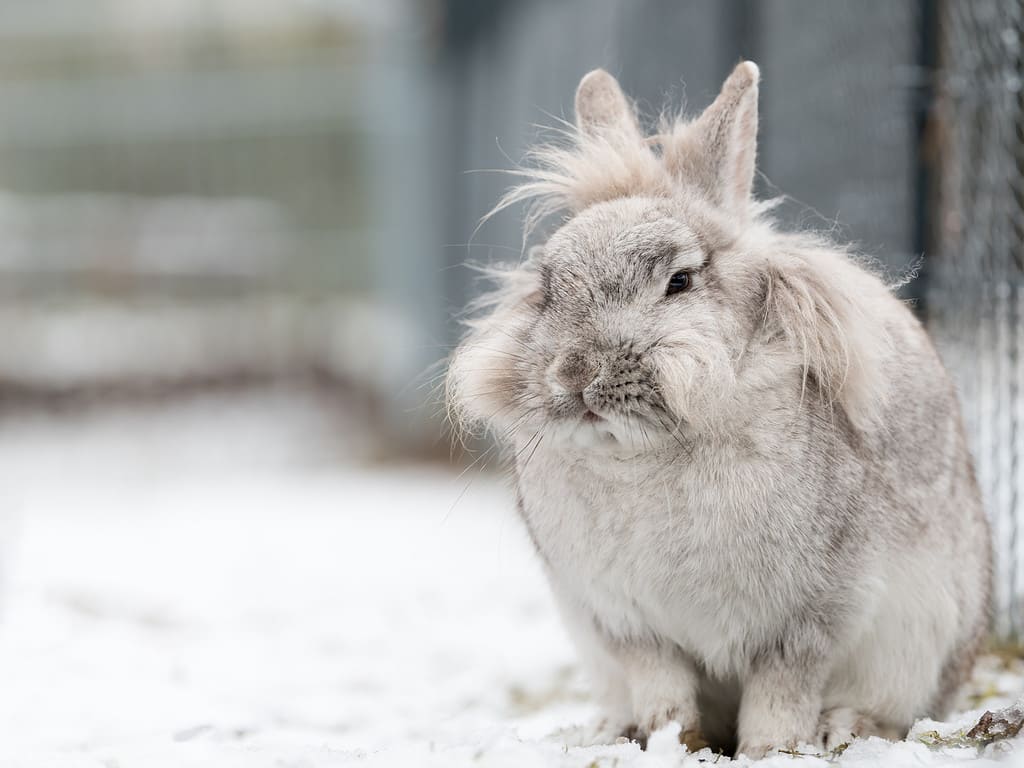
Rabbits need one to two hours of exercise a day.
©Stefan Rotter/ via Getty Images
When it comes to rabbits as pets, they need way more space than you might believe. The cages sold in pet stores and online will most likely be too small. For small rabbits, about one foot in length, you’ll need at least three to four feet on all sides for their enclosure. Plus, they need an exercise space that is at least 24 square feet. Rabbits are not a pets that you can feed and walk away from. You’ll need to give them daily attention and quality time to keep them from getting bored and hurting themselves. The best times to hang with your rabbit are dawn and dusk.
4. They Can Be Expensive
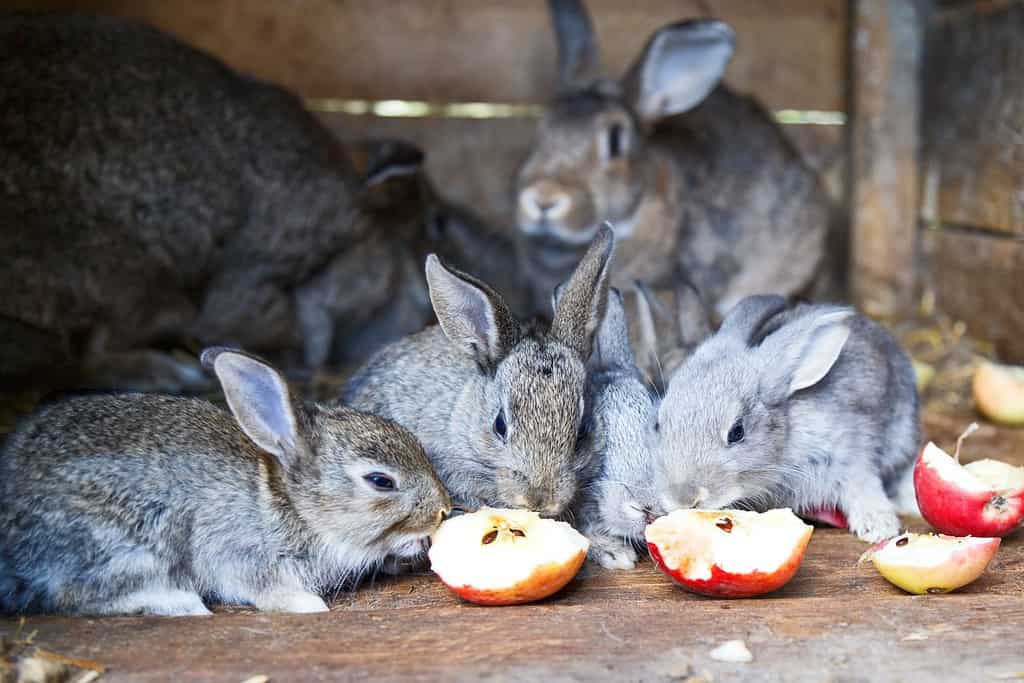
Rabbits need specialized vet care.
©Ievgenii Malyshko/Shutterstock.com
The rabbit needs a special diet that can get pricey. You want to give your animal high-quality food from good sources. Feed your rabbit a mixture of grass hay, leafy greens, pellets, and a few treats every once in a while. Do not let your rabbit run out of hay and provide them with leafy greens and pellets daily. In addition to a specialized diet, rabbits need unique medical care. You must take them to a vet that can work with small animals. Annual exams are necessary and usually range between $100 and $150. Emergency expenses are very expensive. Plus, getting your animals fixed can be quite expensive, but you can adopt some that have already had the procedure.
Thank you for reading! Have some feedback for us? Contact the AZ Animals editorial team.

